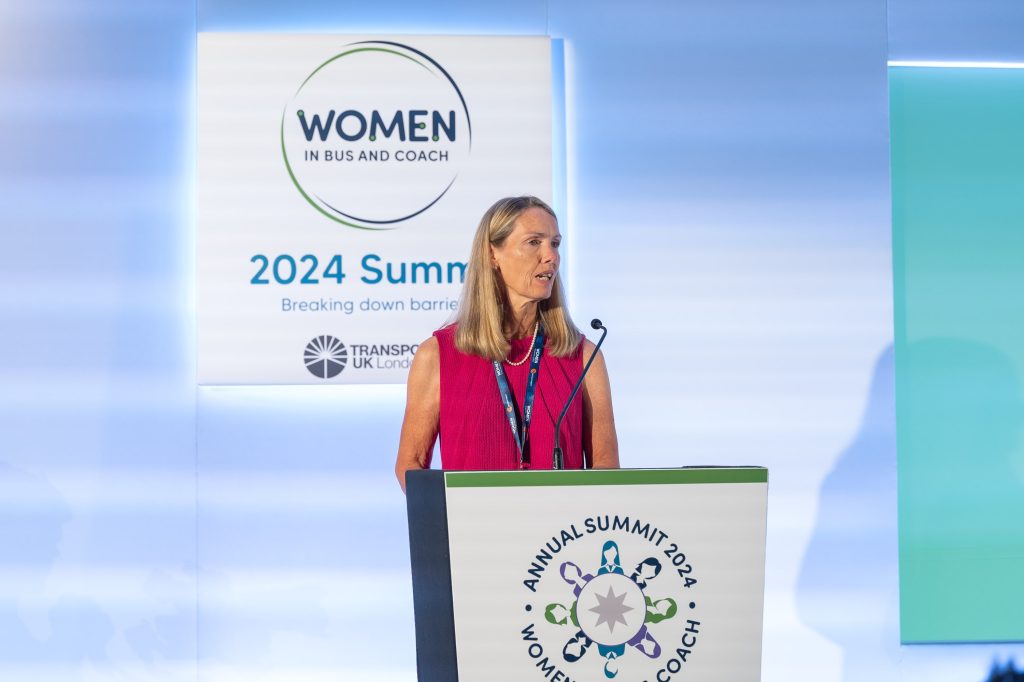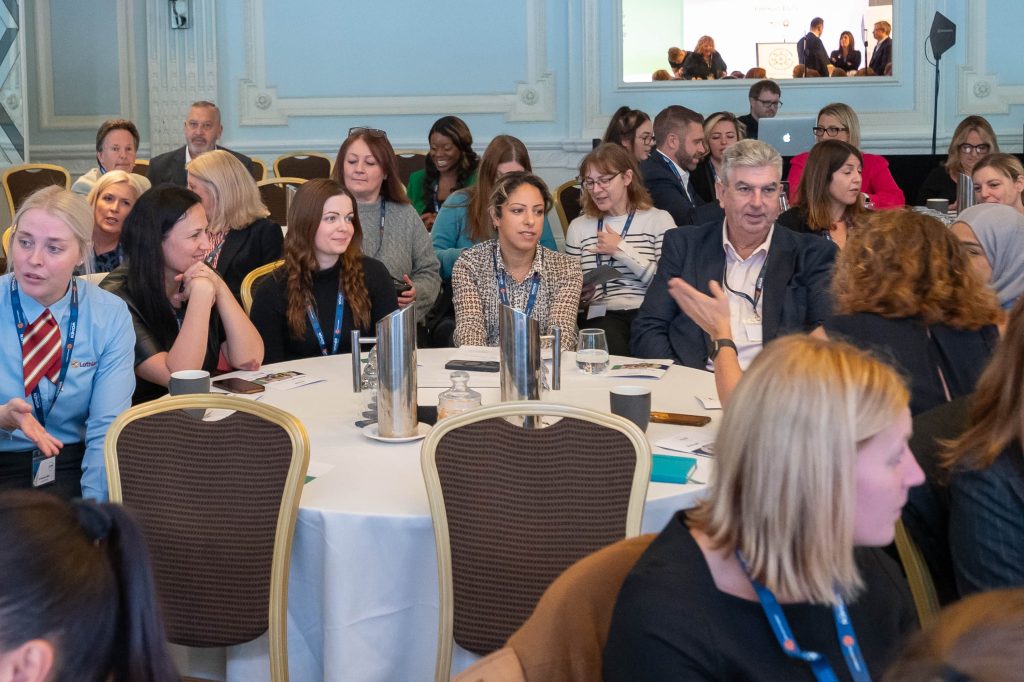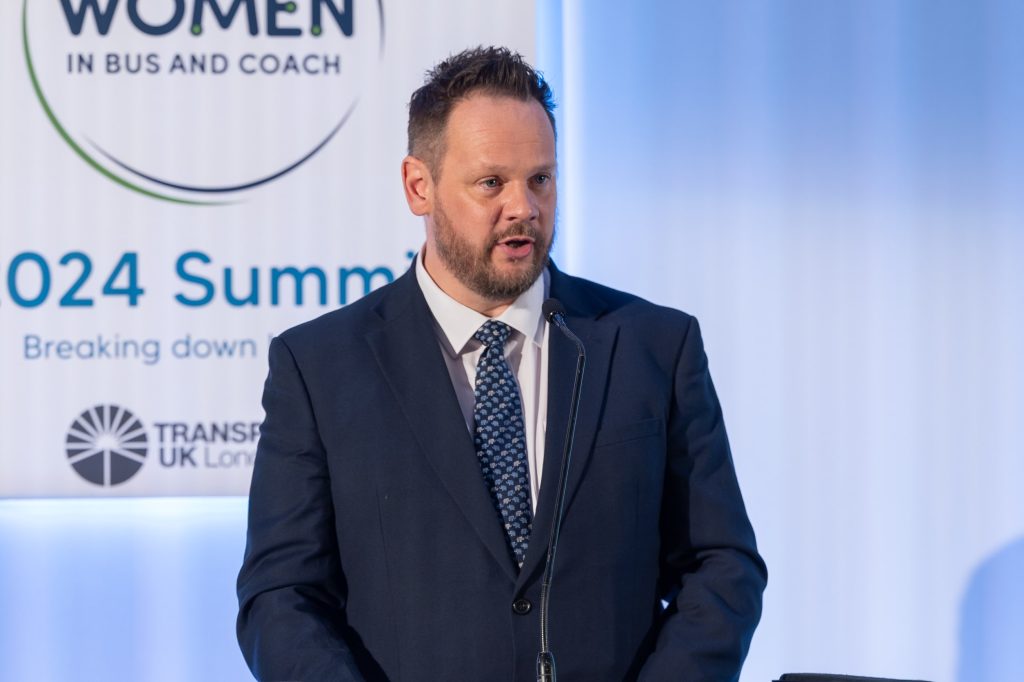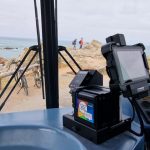Sixteen months after its launch in London, the second annual Women in Bus and Coach (WiBC) summit took place on 8 October.
The WiBC initiative is a safe space to celebrate and further advance the contributions of women across the coach, bus and community transport sector, while getting direct on challenges. This year’s summit was booked to capacity at the Midland Hotel in Manchester and, as a sign of its growing influence, delivered keynote addresses from notable political figures, namely Under- Secretary of State for Transport Simon Lightwood, who extolled the virtues of Labour’s bus reform plans while acknowledging the paucity of female drivers and engineers, and Andy Burnham, who marked the role of women in Manchester’s franchising transformation.
In addition to a day of seminars on opportunities and challenges across the industry, updates were provided on the Inclusive and Ergonomic Cab Design Project launched last year, which continues to move forward, accompanied by a number of campaign announcements:
- Blue Plaque Initiative: Called the Trailblazer Blue Plaque Initiative, WiBC has launched a programme to honour the legacy of women who have made contributions across the coach, bus and community transport sectors. The inaugural recipients are Mary Curry, first woman driver to qualify for Hants and Dorset in 1973, and the late Jill Viner, first woman bus driver in London, who qualified in 1974. WiBC organisers say there is a long list of recipients, and are on the lookout for new nominees
- Period Positive Campaign: WiBC this year has launched a new campaign to promote menstrual equity by seeking to ensure facilities and policies across the industry are put in place to accommodate women’s health needs
- New regional branches: In recognition of unique regional challenges and successes, WiBC has launched branches in the North of England and Ireland to provide a platform for women and allies in those regions
- Coach sub-group: A newly established sub-group will provide targeted support and advocacy for women in the coach sector while fostering collaboration across coach-specific issues.
Outreach continues
While support continues to grow for WiBC and the momentum delivers targeted campaigns, a prevailing opinion is that there is still a long way to go. That only 10% of the overall workforce comprises women is evidence alone; there also remains much work to address the less quantifiable barriers and prejudices that women and minority groups still face in the workplace. WiBC provides a platform for earnest discussion of those issues, and collaboration on solutions. Louise Cheeseman, founder and Chair of WiBC, is encouraged by the 2024 summit, in particular its endorsement by high profile names such as Mr Lightwood and Mr Burnham. Ambitions remain to make WiBC a global initiative.
“Having influential opening speakers is so important, and we can’t thank them enough for having taken this opportunity,” she tells routeone. “The minister can be a guiding mind for change; he was enthusiastic about that.”
Diversity supports growth
Manchester was a logical choice for the 2024 summit due to its central role in the northern economy and the high-profile nature of the Bee Network rollout.
The conclusion of the government’s consultation on reducing barriers to bus franchising coinciding with the event was a point of focus for WiBC. As franchising goes ahead, Ms Cheeseman is keen to see evidence in tendering that operators have diversity and inclusivity plans in place, and that local transport authorities reward operators that meet their targets.
“We knew that WiBC could support Manchester in what it’s doing,” explains Ms Cheeseman. “The city can’t achieve what it wants to without the necessary resource, and highlighting the virtues of a diverse workforce goes a long way to supporting recruitment, not just of drivers but of the back- office staff that deliver on those aspirations.
“Our ambition is to create data to see what progress is being made there, and see not just how many women are joining the sector through these initiatives — equally important is how many women are leaving. There are great ads to get women to join the industry, but more important is that we keep them — retention will show how impactful our efforts are.”
Strong endorsement
Ms Cheeseman reports a robust backing of WiBC one year on from its first national summit. “At all senior networking events, people now want to know how they can get involved. That has been a massive sea change. Five years ago, we would not have been able to go into a room of senior people in this sector and easily discuss this topic. Now, operators are putting KPIs for recruitment of women into their industry. Go-Ahead is a leading example. This all feels very different from 2021, when I joined Transport for London as Director of Buses, to where we are now. That can only continue to grow.”
Planning has already begun for next year’s summit to accommodate even more attendees. “We’ve set ourselves a high bar to match this year,” Ms Cheeseman says. “This is about building a firm foundation. We must constantly ensure we address the true issues and make tangible change that benefits everybody. When we’re gone, we will have left a significant legacy for whoever carries this on.
“In particular, I want to say a massive thank you to all the corporate members and sponsors, but equally, all the male allies. This is a challenge for men and women in the sector, and for all the men that support us and continue to do so, massive thanks are deserved — we couldn’t do this without them.”
This year also saw the launch of an awards ceremony to celebrate outstanding individuals and exceptional contributions among women in the industry.






























